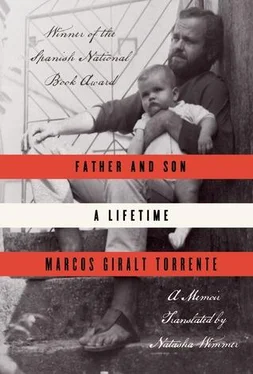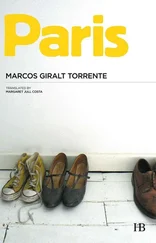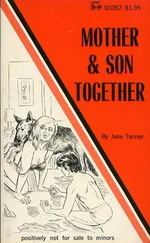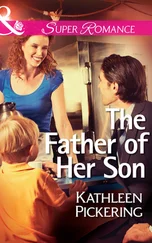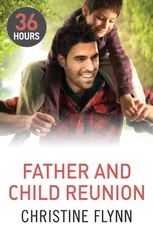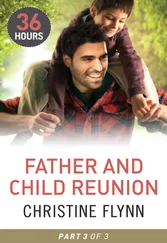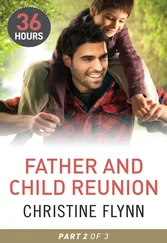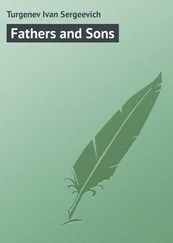It wasn’t easy. Easy would have been what he didn’t do.
My devotion had a day after. His didn’t.
And there was a reward for me, though it was only what tradition or common sense dictates.
I’d have done the same if I’d known that I wouldn’t get it (as it was, for a long time I didn’t know that I would). Though it’s likely that in that case the circle wouldn’t have closed. Not for me and not for him.
And what about her, the friend my father met in Brazil? This is a book about two people, as I’ve said, and it’s not my aim to unearth her motives. Why did she act the way she did? Was it greed, immaturity, egoism? Whatever the determining factor, it doesn’t matter. Maybe greed was the childish tool of her egoism that she wielded to enable her to step out of the picture, to reject a responsibility she was incapable of assuming. That’s the best-case scenario. Or worst case, maybe the failure of her egoistic aspirations was the immature fruit of her excessive greed.
I can judge her, but it isn’t my mission to redeem her or condemn her.
More essential, anyway, is to determine the mark that her actions left on my father.
And the mark changed over time.
It began as incredulity, turned into silent disenchantment, and ended up as contemptuous indifference.
Did he really not see it coming?
When the signs were already alarming, he continued to make excuses for her.
He made excuses for her in order to retroactively excuse himself.
Or he made excuses for her because he wasn’t yet convinced that he was going to die, and knowing that I would be with him on every front of his illness, but not every front of his life, he still needed a life after his illness.
Or he made excuses for her because he still believed her to be innocent. A schemer, with the brain of a mosquito, as he said, but innocent.
That’s the answer, I think.
I guess.
Thus the confusion, the silent disenchantment, the contemptuous indifference. The great rancor with which he repaid her toward the end. His stubborn refusal to engage in dialogue with her. His ill will.
There was no going back once he thought he saw her as she was. All his efforts were directed at keeping away from her.
When he confronted his illness, when he contemplated the possibility of his death, it made him want to do right by me. And in the best of worlds, doing right by me shouldn’t have meant ruining things with her.
But we don’t live in the best of worlds.
And he saw her true face, and when he saw it, he pushed her away forever.
And in a way it was as if he was relieved of a tension that had been building for a long time. As if the decision brought him new strength.
But by that point there was no hope.
And he knew it. By then he finally knew it.
This brings me to a paradox: my father gave himself to me fully only when he knew that there was no hope, and to the extent that it was she who opened his eyes, I should be grateful to her. In fact, it could be said that she did me a favor without realizing it.
But at what cost?
It’s a question I’m afraid to answer.
At the cost of obliging my father to face his fate, of stripping the veil from his eyes, of ensuring that if any possibility remained of keeping him deceived, that possibility was destroyed.
Her behavior made it impossible for him to hope, and for a person so fragile, so fearful of almost everything, especially of death itself, this meant consigning him irrevocably to his fate.
No matter what I did, no matter the time I spent reworking each piece of bad news — aided by my skill with words and his faulty memory — to make it seem neutral or even positive, the negative attitude of the friend he met in Brazil, who was so plainly gunning for the day after, was much more persuasive. I managed to deceive him for a long time, or rather for some stretches of that time, but there came a point when it was impossible to keep it up.
The day my father gave the final no to the friend he met in Brazil was the day he gave a no to himself.
Would his prospects have improved if he hadn’t had to give himself that no ? Would he have lived longer? Would he have beaten the odds, those odds that always leave room for doubt, or so the doctors claim once they’ve delivered their miserable diagnosis and worse prognosis and — maybe with the intention of preventing the collapse of the patient and his caretakers — they allow themselves to extend the faintest possibility of hope?
It’s clear that she robbed him of that remote possibility, or at least she made it permissible for us to think she had.
But the previous paradox is cruel here.
If I hadn’t become a threat, if I had wiped myself from the map, maybe she wouldn’t have revealed so plainly the future for which she was preparing, and my father could have continued to have faith.
If I ask myself to what extent her abandonment of him, her preoccupation with the day after, led to the collapse of all hope, I also have to ask myself what might have happened if I hadn’t been so present. It’s just one link up the chain of cause and effect.
And I do ask myself.
I asked myself while it was all happening, before my father died; I continued to ask myself as I began this book; and though the question is now scarcely brighter than a distant lighthouse glimpsed in memory’s eye, I still ask myself.
The intensity has lessened.
The certainty of his death, even when it hadn’t come yet, established a reality so weighty and irrevocable, so different from any other reality I’d known, that speculating about what might have been became an arduous, unpleasant exercise.
That’s the thing about death, that it’s irrevocable. And no matter how closely we’re touched by it, so long as it doesn’t take us, life asserts itself in the end.
The dead leave sadness and not a few questions behind them. They oblige us to contemplate our own death and, at the same time, the futility of life, but our understanding fails us in the face of the inarguable reality that everything comes to an end, that there’s no redemption, that what wasn’t done can no longer be done. After a death that touches us closely, the days go by without improvement. Our bewilderment is as great as it was the first day. The only progress is forgetting and the persistence of life sneaking in through unexpected cracks.
A little while ago, in David Rieff’s Swimming in a Sea of Death , one of the books I’ve continued to read about mourning and parents, I noted that among family members of cancer patients it’s common to feel remorse for not having done enough. I was also told by a writer friend that sixty-five percent of the terminally ill are abandoned by their partners. The figure seems too high, but even if it were correct, my astonishment at what the friend my father met in Brazil did wouldn’t lessen, just as we don’t feel less remorse simply because many others also feel it.
Rieff says that no one does everything that could be done, because it would mean giving up one’s own life. I did give up mine. I did do everything, and I probably did it not just for the sake of compassion or love, but to right old wrongs.
They’re the ones that linger.
I regret, as I’ve said, not having ended the tension between us sooner. I regret having made him suffer. I regret the lost time. I regret what was left unspoken. I regret having needed him to prove by deeds that he was my father and I his son. I regret having thought about his death. I regret having placed a symbolic value on material goods.
Compared to this, any mistakes I may have made when he was sick pale in the light of my extreme devotion.
I don’t regret having left him alone, because I never did.
Читать дальше
